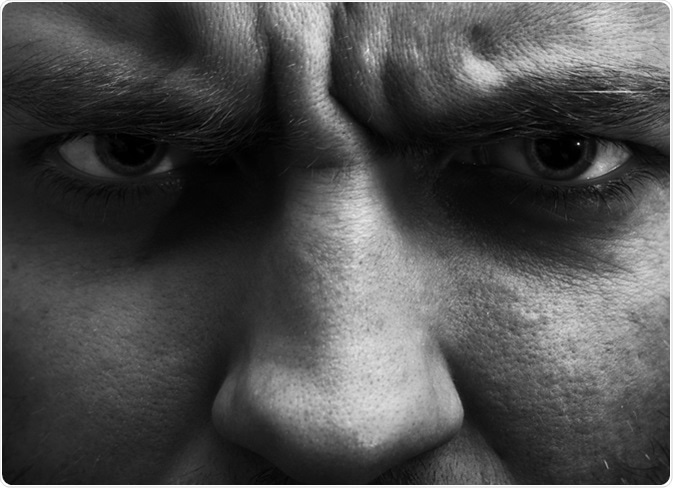Intrusive thoughts are scary and violent thoughts that occur in a situation, which can create instant anxiety and result in depression. People with intrusive thoughts go through a hard time in handling this situation. There are a few therapies and treatments that help people to get rid of such unwanted intrusive thoughts.

Image Credit: Nomad_Soul / Shutterstock
Treatments
The treatment for intrusive thoughts should start with a consultation. The doctor refers to the medical history to ensure that no physical problem is the cause. After analysis, the doctor may recommend one to specialists such as a psychologist, psychiatrist, or counselor.
These specialists further analyze the condition and evaluate the stages that the patients have to undergo. Intrusive thoughts and all other mental-related problems are treated using two therapies, cognitive behavioral therapy (CBT) and exposure and response prevention therapy (ERPT).
Cognitive Behavioral Therapy
This is a form of talking and behavioral therapy and is effectively used to treat intrusive thoughts and obsessive compulsion disorder. CBT helps patients in understanding the effects of thoughts on their behavior. This therapy comprises cognitive analyzation and behavioral analyzation. Cognitive analyzation includes examining the thoughts and ideas that the patients exhibit, while behavioral analyzation is analyzation of the reaction shown by the patients as a result of their thoughts.
Thoughts and behavior in the human brain are interrelated. In CBT, therapists try to alter the manner in which we think and react to a situation. In this, there is a possibility to change the person’s perceptive about his own life. Undergoing this therapy transforms the negative thinking pattern of a person to a positive one.
CBT gives a clear picture of what can be done to transform negative thoughts. The therapy is based on the current issues that a person faces. For instance, if the patient is affected by depression and anxiety without behavioral symptoms, the therapist provides cognitive therapy, else they provide behavioral therapy. Additionally, if the patient has anxiety along with intrusive thoughts, the therapist provides CBT.
Exposure and Response Prevention
Exposure and response prevention therapy is a type of CBT. Exposure involves deliberately exposing oneself to intrusive thoughts, object, and visuals that make them anxious. The response prevention is blocking the compulsive action that a person commits in reaction to these thoughts. All these observations are done under the governance of the therapist.
The therapy commences with the patient writing down a list of the thoughts, images, or objects that create instant fear and anxiety in him. Then, the patient is exposed to those defects that are marked. The period of treatment varies with one’s capability to overcome anxiety, by controlling it.
The important goal in this session is to make the patient stay connected with the obsessional trigger point by reacting or behaving to it. For instance, if the patient is anxious as a response to washing his/her hands or cleaning, he must increasingly repeat the event again and again. The therapy is carried out in this manner until the patient is relieved from the anxiety.
Medication
Medications for treating intrusive thoughts are of different types. Some prescriptions comprise serotonin and selective serotonin reuptake inhibitors. Both these drugs are widely used to treat depression and other related mental disorders - these may take about 10 weeks to show results. The longer the medication requires, the more serious the side effects will be. The side effects of these drugs are frequent headaches, difficulty in sleeping, etc.
Other medications that help in controlling intrusive thoughts are:
- Paroxetine (Pexeva)—prescribed only for adults.
- Fluoxetine (Prozac)—for children above seven years and also for adults.
- Sertraline (Zoloft)—for children above six years and for adults.
- Fluvoxamine—for children above eight years and also for adults.
Apart from the above the doctor might prescribe other psychiatric and antidepressant medication.
Overcoming Intrusive Thoughts
Although there are treatments and therapies to get rid of intrusive thoughts, there are also behavior modifications by which the person can prepare themself to face or understand his thoughts.
Understanding the thoughts: Choose a peaceful atmosphere where there is no one to disturb. Revisualize or write down the thoughts that create anxiety and fear. Try to understand the consequence of the thoughts. Another way is by practicing some funny or humorous thoughts and applying them whenever required.
Positive approach: Encouraging or giving positive advice to oneself has huge chances of tackling these thoughts. Whenever these thoughts arise, try to command to yourself in a positive way that these will not harm you, and it is just a thought. Acting bold can fool the thoughts and control them.
Meditation: Meditation plays a vital role in controlling the wavering mind and understanding one’s own behavior. By meditating, the person brings calmness into his mind, and this helps in understanding negative thoughts. In this way, it helps to avoid unnecessary thoughts entering the mind.
Further Reading